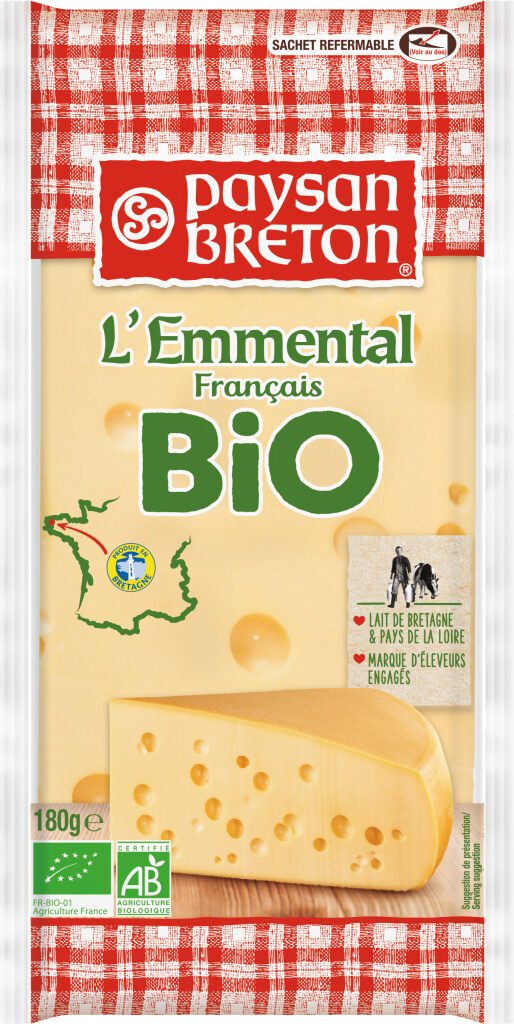L'Emmental Français BIO - Paysan Breton - 180 g
Some of the data for this product has been provided directly by the manufacturer Laita.
Barcode: 3412290017274 (EAN / EAN-13)
Common name: Emmental français Biologique
Quantity: 180 g
Packaging: fr:Sachet plastique
Brands: Paysan Breton
Brand owner: Laïta
Categories: Dairies, Fermented foods, Fermented milk products, Cheeses, Cow cheeses, Hard cheeses, Emmentaler
Labels, certifications, awards:
Organic, EU Organic, FR-BIO-01, Produced in Brittany, AB Agriculture Biologique, fr:Vaches en pâturage 200j/an en moyenne, fr:Éleveurs engagés

Origin of the product and/or its ingredients: Lait : Bretagne Pays de la Loire France
Origin of ingredients: France
Manufacturing or processing places: 29261 PLOUDANIEL, 29260 PLOUDANIEL
Traceability code: FR 29.179.090 CE - Ploudaniel (Finistère, France)
Link to the product page on the official site of the producer: https://www.paysanbreton.com/fr/produits...
Countries where sold: France
Matching with your preferences
Other information
Conservation conditions: A conserver entre +4°C et +8°C
Period of time after opening: fr:Afin de profiter au mieux de la qualité de l'Emmental Paysan Breton, fr:Nous vous conseillons de le consommer dans les 5 jours qui suivent l'ouverture.
Recycling instructions - To discard: Sachet plastique à jeter
Customer service: 0 800 003 136
Report a problem
Data sources
Product added on by kiliweb
Last edit of product page on by foodvisor.
Product page also edited by ecoscore-impact-estimator, org-laita, packbot, roboto-app, segundo, yuka.sY2b0xO6T85zoF3NwEKvlmhiCdyFrgPuBQLmphGB_dKuDbLDOdhs4JqnPag, yuka.sY2b0xO6T85zoF3NwEKvlnRMV-PMiTPANDr6k0TTwfKoM77vRYovudPiFqs.















